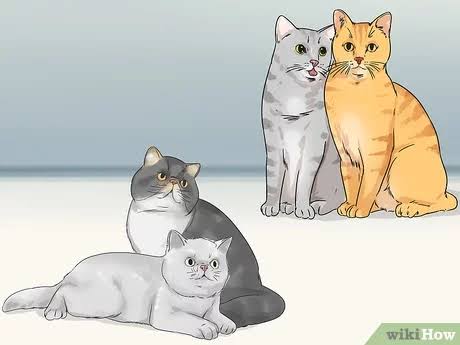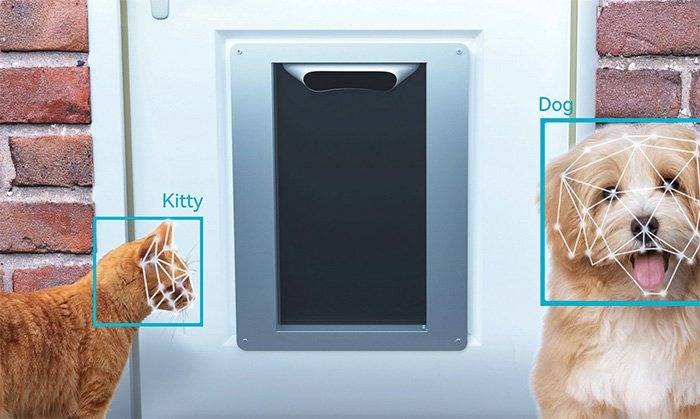
Rescue vs. Purebred Cats: Which One Should You Adopt?
Choosing between a rescue and purebred cat is a personal decision. Purebreds offer predictable traits, while rescues offer a chance to give a deserving animal a home. Consider temperament, health, cost, and lifestyle. Both options offer unique rewards. Research, ask questions, and choose the feline companion that best fits your life.
🐶 Pet Star
15 min read · 2, Feb 2025

Understanding the Options:
First, let's clarify what we mean by "rescue" and "purebred." Rescue cats come from various backgrounds. They might be strays found on the street, abandoned pets, or cats surrendered to shelters and rescue organizations. Purebred cats, on the other hand, are from specific breeds with documented pedigrees. They are typically purchased from breeders.
Temperament and Personality:
One of the biggest differences between rescue and purebred cats lies in their temperament. Purebred cats are often bred for specific personality traits. For example, Ragdolls are known for their docile and affectionate nature, while Siamese cats are known for their vocal and playful personalities. However, it's important to remember that even within a breed, individual cats can have their own unique quirks.
Rescue cats, due to their varied backgrounds, can have a wider range of personalities. Some might be shy and timid, while others are outgoing and friendly. Shelters and rescue organizations often assess the temperament of their cats, providing potential adopters with information about their personality and behavior. However, it's often said that rescue cats, knowing they've been given a second chance, are especially grateful and loving.
Health Considerations:
When it comes to health, purebred cats can be more prone to certain genetic conditions. Because they come from a limited gene pool, they may inherit predispositions to diseases specific to their breed. Reputable breeders will screen their cats for these genetic issues, but it's still something to consider.
Rescue cats, while not exempt from health problems, often have a more diverse genetic background, which can make them less susceptible to breed-specific diseases. However, it's important to remember that rescue cats may have experienced neglect or illness in the past, so it's essential to take them for a veterinary check-up after adoption. Many shelters and rescues will have already taken care of initial vaccinations and sometimes even spaying/neutering.
Cost Factors:
The cost of acquiring a cat is another significant difference between rescue and purebred. Adopting a rescue cat typically involves an adoption fee, which covers the cost of vaccinations, spaying/neutering, and sometimes microchipping. This fee is usually much lower than the cost of purchasing a purebred kitten from a breeder.
Purebred kittens can be quite expensive, especially if they come from champion bloodlines. In addition to the purchase price, you'll also need to factor in the cost of vaccinations, spaying/neutering, and any other veterinary care.
Emotional Rewards:
Both rescuing a cat and getting a purebred can be incredibly rewarding experiences. With a purebred, you have a better idea of what to expect in terms of temperament and potential health issues. However, rescuing a cat can be especially fulfilling. You're giving a deserving animal a second chance at a loving home. The gratitude and affection you receive from a rescued cat can be truly heartwarming.
Lifestyle Considerations:
When deciding between a rescue and purebred cat, it's important to consider your lifestyle. If you have a busy lifestyle and are looking for a cat that is relatively low-maintenance, a rescue cat might be a good option. Many adult rescue cats are already litter-trained and have established routines.
If you have specific preferences in terms of breed characteristics or are looking for a kitten to raise from a young age, a purebred cat might be a better fit. However, remember that kittens require a lot of time and attention.
Making the Decision:
Ultimately, the decision of whether to rescue or adopt a purebred cat is a personal one. There is no right or wrong answer. Consider your lifestyle, personality, and what you're looking for in a feline companion. Visit local shelters and rescue organizations to meet adoptable cats. Talk to breeders if you're interested in a specific breed. Do your research and ask lots of questions.
A Few Words From Grandma:
My dear grandson, I've had the pleasure of knowing many wonderful cats in my life, both rescues and purebreds. Each one has been unique and special in their own way. The most important thing is to choose a cat that you connect with and that will fit into your life. Open your heart, do your homework, and I'm sure you'll find the purrfect companion.
Q&A Section:
Q1: I'm allergic to cats. Are there any breeds that are better for allergies?
Ans: Some breeds, like the Siberian or Sphynx, are considered to be hypoallergenic, meaning they produce less of the protein that causes allergic reactions. However, no cat is completely allergy-free.
Q2: I have young children. Are there any breeds that are known to be good with kids?
Ans: Many breeds are known to be good with children, such as Ragdolls, Birmans, and American Shorthairs. However, it's important to supervise interactions between children and cats, regardless of breed.
Q3: I live in a small apartment. Are there any breeds that are better suited for apartment living?
Ans: Many cats adapt well to apartment living, especially if they have plenty of vertical space and opportunities for play. Consider breeds like the British Shorthair or Russian Blue.
Q4: I'm looking for a cat that is very affectionate. What breed would you recommend?
Ans: Ragdolls are known for their affectionate and docile nature. However, many rescue cats are also very loving and enjoy cuddling.
Q5: What are some things I should ask a breeder when considering a purebred kitten?
Ans: Ask about the kitten's health history, the parents' health, and any genetic testing that has been done. Also, ask about the kitten's personality and socialization.
Similar Articles
Find more relatable content in similar Articles

Sustainable Pet Products: What to Look for in 2025...
As sustainability becomes a ce.. Read More

Smart Homes for Pets: Automated Feeders, Doors, and Mo..
As smart home technology advan.. Read More

How Pets Strengthen Family Bonds...
Pets are more than just compan.. Read More

How Climate Change Affects Wild and Domestic Animals...
Climate change is dramatically.. Read More
Explore Other Categories
© 2024 Copyrights by rPets. All Rights Reserved.